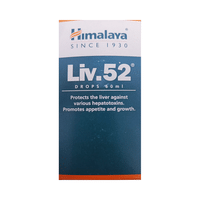Anset R Injection
food interaction for Anset R
alcohol interaction for Anset R
pregnancy interaction for Anset R
lactation interaction for Anset R
food
alcohol
pregnancy
lactation
No interaction found/established
It is unsafe to consume alcohol with Anset R Injection.
UNSAFE
Anset R Injection is generally considered safe to use during pregnancy. Animal studies have shown low or no adverse effects to the developing baby; however, there are limited human studies.
SAFE IF PRESCRIBED
Anset R Injection is probably safe to use during breastfeeding. Limited human data suggests that the drug does not represent any significant risk to the baby.
SAFE IF PRESCRIBED
SALT INFORMATION FOR Anset R
Ondansetron(NA)
Uses
How it works
Ondansetron is an antiemetic medication. It works by blocking the action of a chemical messenger (serotonin) in the brain that may cause nausea and vomiting during anti-cancer treatment (chemotherapy) or after surgery.
Common side effects
Constipation, Diarrhea, Headache, Flushing (sense of warmth in the face, ears, neck and trunk), Injection site reactions (pain, swelling, redness), Extrapyramidal symptoms, Arrhythmia (irregular heartbeats), Chest pain, Slow heart rate, Hypotension (low blood pressure), Hiccup, Increased liver enzymes, Hypersensitivity, Dizziness, Altered vision, Prolonged QTc interval
Ranitidine(NA)
Uses
Ranitidine is used in the treatment of gastroesophageal reflux disease (acid reflux) and peptic ulcer disease.
How it works
Ranitidine is a histamine H2 receptor blocker that reduces the amount of acid made in the stomach. It relieves acid-related indigestion and heartburn.
Common side effects
Headache, Diarrhea, Gastrointestinal disturbance, Blood disorder, Intrahepatic cholestasis, Hypersensitivity, Disorientation (alteration of mental status), Confusion, Anxiety, Agitation, Depression, Decreased libido, Insomnia (difficulty in sleeping)
SUBSTITUTES FOR Anset R
No substitutes foundExpert advice FOR Anset R
- You have been prescribed Ondansetron for prevention of nausea and vomiting caused after surgery or due to chemotherapy and radiotherapy.
- It is fast-acting and starts working within 30 minutes.
- If you vomit within one hour of taking a dose, take another dose.
- Avoid heavy meals and try eating small nourishing snacks throughout the day. Also, sip water regularly to help avoid dehydration.
Frequently asked questions FOR Anset R
Ondansetron
Q. How quickly does Ondansetron work?
Ondansetron starts working within half an hour to 2 hours. It dissolves rapidly into the bloodstream and starts showing its effect.
Q. What are the side effects of Ondansetron?
The most common side effects of Ondansetron are constipation, diarrhea, fatigue and headache. However, these are usually not bothersome and resolve on their own after some time. Consult your doctor if these persist or worry you.
Q. When should you take Ondansetron?
Ondansetron should be taken with a full glass of water, with or without food. It should be used exactly as per the dose and duration advised by the doctor. Usually, the first dose of Ondansetron is taken before the start of your surgery, chemotherapy or radiation treatment.
Ranitidine
Q. Can I take Ranitidine empty stomach?
Ranitidine may be taken with or without food. It can be taken once daily before bedtime or twice daily in the morning and before bedtime, as recommended.
Q. How long does it take for Ranitidine to start working?
Ranitidine starts working as fast as 15 minutes from when it is given. Its effect is seen to last all day or all night.
Q. What is the difference between Ranitidine and omeprazole?
Ranitidine and Omeprazole belong to different groups of medicines. While Ranitidine belongs to histamine H2 antagonists group, Omeprazole belongs to proton pump inhibitors group. These medicines (Ranitidine and Omeprazole) work by reducing the amount of acid made by the stomach, to give relief of symptoms and allow healing to take place.






















